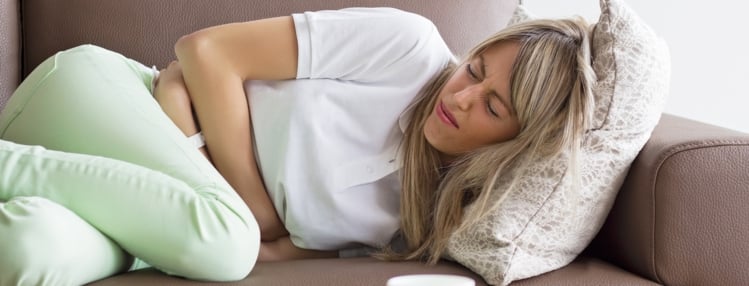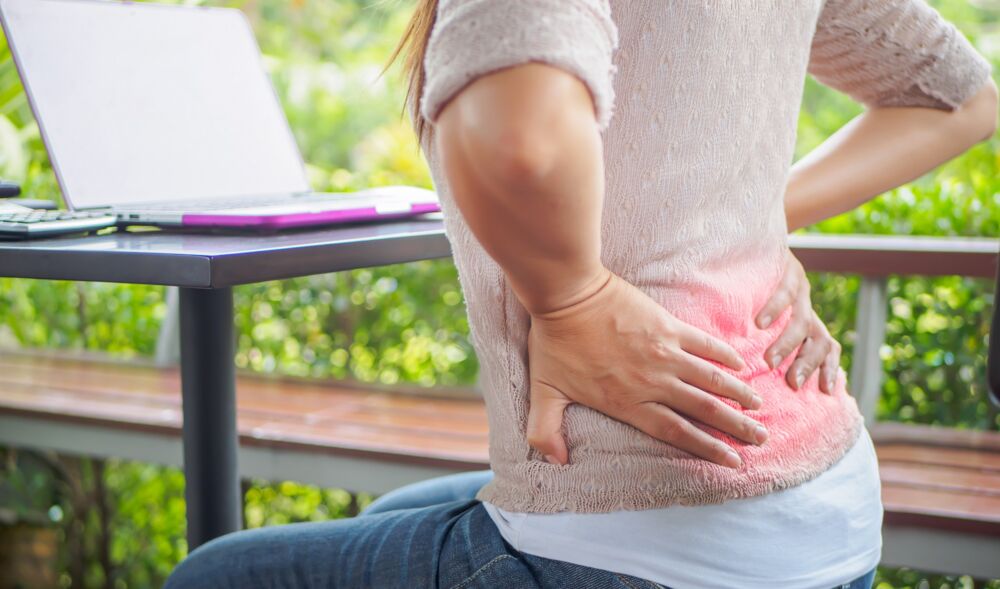"Why is my period so heavy?" – this is the question many women ask female health experts. And it doesn’t just refer to the pain they feel in their abdomen. Some girls have lower back pain during periods, some feel breast pain or even muscle cramps. Today we’ll try to dive deeper into how period works and find out how to ease period pain if it gets unbearable.
-
Tracking cycle
-
Getting pregnant
-
Pregnancy
-
Help Center
-
Flo for Partners
-
Anonymous Mode
-
Flo app reviews
-
Flo Premium New
-
Secret Chats New
-
Symptom Checker New
-
Your cycle
-
Health 360°
-
Getting pregnant
-
Pregnancy
-
Being a mom
-
LGBTQ+
-
Quizzes
-
Ovulation calculator
-
hCG calculator
-
Pregnancy test calculator
-
Menstrual cycle calculator
-
Period calculator
-
Implantation calculator
-
Pregnancy weeks to months calculator
-
Pregnancy due date calculator
-
IVF and FET due date calculator
-
Due date calculator by ultrasound
-
Medical Affairs
-
Science & Research
-
Pass It On Project New
-
Privacy Portal
-
Press Center
-
Flo Accuracy
-
Careers
-
Contact Us
Period Pain: How to Get Rid of Menstrual Cramps in Abdomen and Your Entire Body


Every piece of content at Flo Health adheres to the highest editorial standards for language, style, and medical accuracy. To learn what we do to deliver the best health and lifestyle insights to you, check out our content review principles.
Period pain can be heavier than usual
The follicular phase of the menstrual cycle is from the start of the menstruation to a few days afterwards (usually day 1–13) when the estrogen level is low. You can use a period tracking app like Flo to predict when this is likely to be.
Studies have shown that women are more susceptible and sensitive to pain during the first half of the follicular phase (day 1–6).
To avoid extreme period pain, it is recommended that you postpone dental visits, hair removal, skin peeling or facials, and other painful procedures for 5–7 days after the end of menstruation.
Pain tolerance reaches its maximum toward the middle of the cycle, and you will be able to resume your health and beauty regimen.
Lower abdomen pain during periods
Painful periods can occur even when the reproductive system is completely healthy. In this case, this is called primary dysmenorrhea.
There are several typical period pain causes:
- First, during menstruation, the uterus contracts to expel its inner lining (the endometrium). As a result, the blood vessels are compressed, which causes a temporary lack of oxygen and provokes the discomfort.
- Second, throughout the menstrual cycle, uterine tissues accumulate prostaglandins, hormone-like substances that intensify uterine contractions. The higher the level of prostaglandins, the more severe the pain. Prostaglandins accumulate in other smooth muscle tissues, for example, in those of the bronchi or intestines, which is why painful periods are often accompanied by nausea, vomiting, and diarrhea.
- Menstrual pain can also be a manifestation of secondary dysmenorrhea. In this case, it is often associated with pelvic disorders (endometriosis, inflammation of the uterus, and uterine appendages), and it is recommended that you undergo an examination.
Why can you feel period pain in areas besides your abdomen?
Referred pain is pain that occurs away from its actual source. During your period, you can feel discomfort not only in the lower abdomen, but also in the lower back, sacrum, or hip area.
Such a broad area of pain is associated with the nervous system structure as nerve plexuses are located very close to each other in the pelvic area.
In most cases, period pain is the result of uterine contractions. Pain impulses are transmitted via the nerve network from the uterus to the uterine plexus and then to the spinal nerves, which causes discomfort in the lower back, sacrum, or hips.
Moreover, uterine tissues accumulate prostaglandins, hormone-like substances that intensify uterine contractions. The higher the level of prostaglandins, the more severe the pain.
Period back pain can be more intense if the uterus is tipped backwards relative to other pelvic organs.

Take a quiz
Find out what you can do with our Health Assistant
How to stop period pain
The first few days of your period are likely to be the most painful. This is because the uterus is contracting in order to shed the inner lining and produce the menstrual period.
Exercise, sex, and eating your favorite food stimulate the production of hormones that ease the pain and lift your mood.
But if you really feel terrible, don't force yourself to do a physical activity. Just try to listen to what your body is telling you.
Period pain relief
Prior to menstruation, uterine tissues synthesize prostaglandins, hormone-like substances involved in regulating uterine contractions when the uterus is expelling its inner lining (the endometrium).
If the prostaglandin levels go up, the uterus contracts more actively, and the pain preceding and accompanying your period gets more intense.
You can reduce the discomfort by controlling prostaglandin production with the help of a diet.
For period cramps relief, try to replenish your diet with foods containing:
- omega-3 fatty acids (fish oil, flaxseed, seafood, walnuts)
- lycopene (tomatoes, pink grapefruits, apricots, guava)
- bromelain (pineapple)
- Ginger extract, and vitamins B, E, and C, as well as magnesium, will help in menstrual pain relief as they affect uterine smooth muscle contractions.
The balance of prostaglandins is disrupted by smoking, caffeine, and alcohol, so try to limit your exposure to those.
You should also avoid stress and chaotic eating as this has a negative effect on your overall well-being.
Ginger for period pain: does it help?
A study found that ginger was as effective as ibuprofen for relieving menstrual cramps — reducing the intensity and duration of pain.
If you have painful periods, try this recipe for ginger tea: steep 2 tablespoons of fresh ginger root in water for 15 minutes, then strain it and enjoy with honey or lemon.
How to stop heavy periods, or at least reduce the pain and blood loss
Prostaglandins are biologically active substances that induce pain. In the uterine tissue, they cause severe uterine contractions and agonizing pain.
The discomfort may also be due to the uterus being tipped forwards or backwards relative to other organs.
Heavy menstrual bleeding is often associated with an imbalance of sex hormones, thyroid gland malfunction, or blood coagulation disorders.
To relieve the pain and reduce the blood loss, apply an ice pack to the lower abdomen (for no more than 15 minutes).
To prevent anemia, it is recommended that you include foods and medical products containing iron, and vitamins E, C, and B9 (folic acid) in your diet.
If heavy and/or painful periods have become a regular occurrence, please consult your doctor. It is likely that non-steroidal anti-inflammatory and hemostatic agents, or combined oral contraceptives will be prescribed.
Frequently asked questions on period pain
Which painkiller is best for period pain?
If you're experiencing mild period pain, over-the-counter NSAID medications such as aspirin, naproxen, or ibuprofen are usually enough to provide relief. If your period pain is more severe, prescription painkillers can also be recommended by your doctor. Oral contraceptives can also help control certain causes of menstrual pain.
How do I get rid of period cramps fast?
In addition to taking an over-the-counter painkiller once the cramping starts, other home strategies can help you cope with period pain. Avoiding excessive salt and caffeine, and getting a massage might help improve your menstrual pain.
Can you go to the ER for period cramps?
If your menstrual pain becomes too severe, or if it's accompanied by heavy bleeding. You should also talk to a doctor about your period pain if it doesn't subside with painkillers. A doctor could rule out conditions such as endometriosis. You can also call your primary care physician, and they'll tell you whether or not you need to go to the ER.
Does ibuprofen make you bleed more on your period?
Ibuprofen is a non-steroidal anti-inflammatory drug (NSAID). NSAIDs work by inhibiting the activity of cyclooxygenase enzymes, and production of prostaglandins, which cause inflammation and period pain. This substance also makes your uterus contract, so taking NSAIDs such as ibuprofen can actually reduce your menstrual flow in the short-term. However, not all women experience this effect, which is why doctors don't prescribe NSAIDs to reduce menstrual flow.
Can taking a bath stop your period?
Your period doesn't really stop when you're inside the water. It simply stops flowing outside of your vagina while you take your bath or go for a swim. This happens because the water exerts pressure and stops the blood from flowing, but it's still leaving your uterus.
Can stress cause heavy periods?
It can. Stress and anxiety make you release certain hormones that can cause a thickening of your uterine lining. That means that once it's time to shed that lining or endometrium, your period will be heavier. In addition to this, stress can cause your periods to become irregular. That's why managing your stress can be good for your period pain.
How do you stop blood clots during your period?
Expelling some blood clots during your period can be perfectly normal, and it happens all the time. Under normal circumstances, your menstrual clots should be smaller than a quarter coin. Discolored clots can also be a symptom of trouble. If you experience this, talk to your doctor to discover the underlying cause of your menstrual clots.
Is it my period or a miscarriage?
Bleeding from a miscarriage will usually be heavier than a period. During a miscarriage, you'll probably also be expelling large clots or fetal tissue. Miscarriage is also more likely to produce strong abdominal pain and uterine cramping, and they'll usually happen some weeks after your expected period date. Go to the doctor if you suspect you're having a miscarriage.
Why do periods may smell like fish?
Your menstrual flow is actually sterile and odorless until it comes into contact with air, which makes odors can develop due to bacterial growth. This is more likely if you haven't changed your period protection product for hours. If you still feel a bad odor after your period ends, talk to the doctor since you could have bacterial vaginosis.
Does being sexually active make your period worse?
Being sexually active can cause changes in your menstruation. Since having sex regularly can affect your hormones, you might actually notice that your period comes more regularly than before. If you have sex during your period, you could notice a heavier flow right after intercourse, since orgasm can make your uterus contract and expel more blood.


Hey, I'm Anique
I started using Flo app to track my period and ovulation because we wanted to have a baby.


The Flo app helped me learn about my body and spot ovulation signs during our conception journey.


I vividly
remember the day
that we switched
Flo into
Pregnancy Mode — it was
such a special
moment.
Real stories, real results
Learn how the Flo app became an amazing cheerleader for us on our conception journey.




